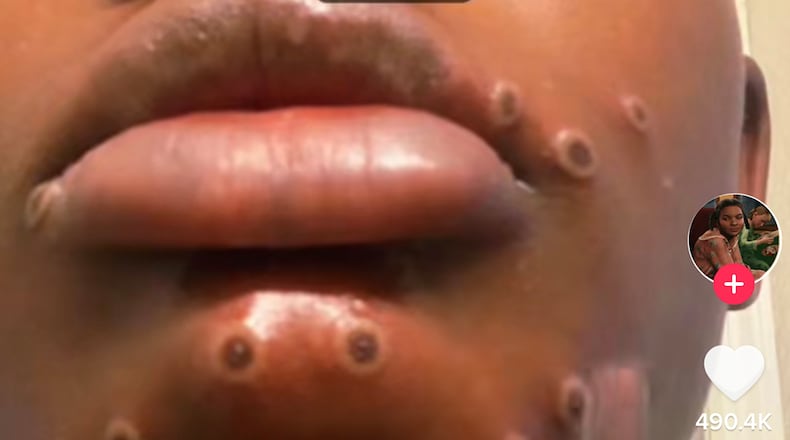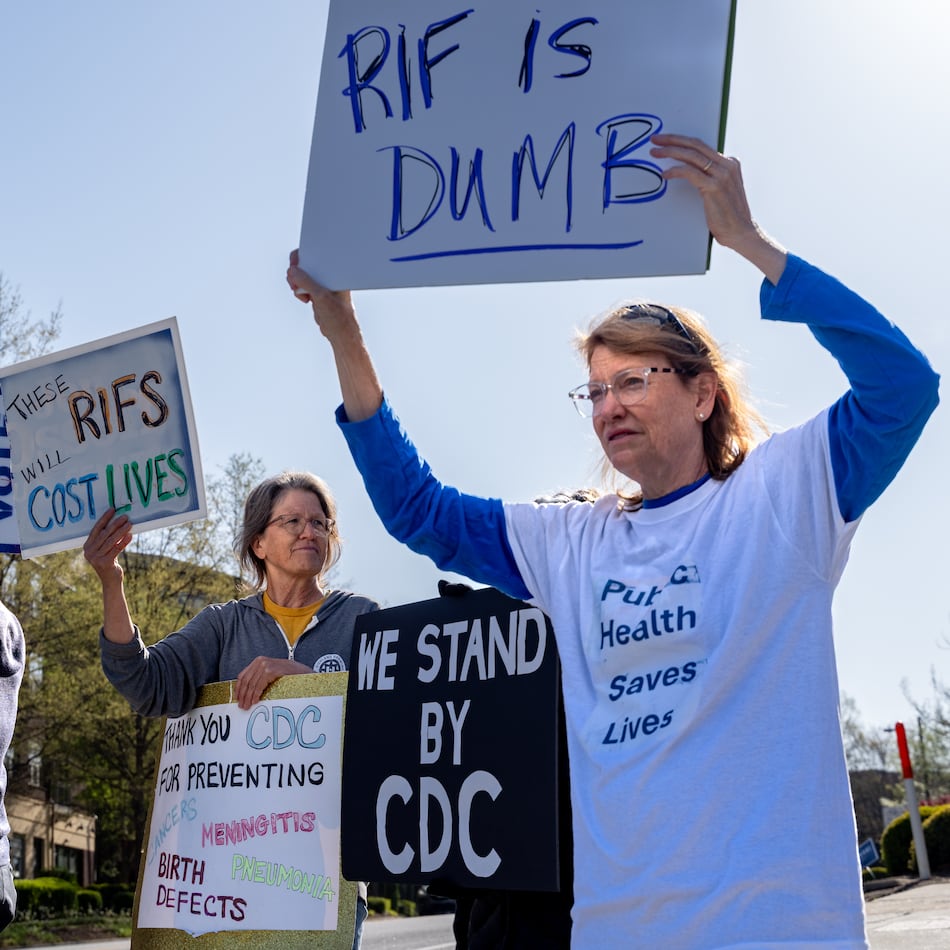Editor’s note: This story has been updated to reflect the most recent statement on monkeypox transmission from the Georgia Department of Public Health.
A Marietta mother had never heard of monkeypox until she said she went to the hospital seeking answers to why she was feeling poorly.
There, Camille Seaton learned that the painful, fluid-filled lesions on her face, which also eventually spread to her body was monkeypox.
A swab confirmed it was the virus that the World Health Organization recently deemed a global health emergency. So far, there are 504 confirmed cases in Georgia - up from 430 on Tuesday —and more than 6,600 in the United States, according to the Centers for Disease Control and Prevention.
“I’m feeling much better,” said Seaton, the 20-year-old Marietta mother of a toddler, who went public with her experience on social media to raise awareness about the virus and she is also using GoFundMe to help pay some of her medical expenses.
She also experienced fatigue, difficulty breathing, pounding headaches and a fever that ranged from 101 to 106.“I want people to know what it is because it’s here.”
After leaving the hospital she spent three weeks in isolation. No one else in her family has been diagnosed with monkeypox.
The lesions became much more noticeable. She had tried to cover them with makeup with little success. “They looked really weird,” said Seaton. “They looked like Cherrios. It was gross looking.”
Seaton works as a cashier in a gas station and suspects she may have caught it at work.
Anyone can be affected by the virus though so far, the virus has affected mostly men who have sex with men. It can spread through prolonged skin-to-skin contact or respiratory droplets, as well as handling bedding or clothing of an infected person. Touching items that previously touched the infectious rash or body fluids is one way monkeypox spreads, but that has not been identified to be a meaningful or common mode of transmission in this outbreak or for monkeypox in general, according to a statement from the Georgia Department of Public Health.
Risk of contracting monkeypox is based on exposure — a person would have to be exposed to enough virus to become infected. “Knowledge of transmission indicates that sharing bedding or towels with someone who is infected with monkeypox would carry more risk than passing encounters with money or a door handle, for example. It does, however, reinforce the importance of handwashing, just as it does for other infectious diseases,” according to the DPH statement.
Nationally. health officials recently reported monkeypox cases in children — one is a toddler in California and the other an infant who is not a U.S. resident but was tested while in Washington, D.C., according to the CDC.
The children were described as being in good health and receiving treatment. How they caught the disease is being investigated, but officials think it was through household transmission.
She doesn’t think health officials have done enough to warn people about the virus.
Her message to others is simple.
Stay safe and if you can get the monkeypox vaccine, do so.
Health officials are advising the public to contact local health departments about appointments, vaccine events, and availability. But appointments are getting snapped up as soon as they become available.
About the Author
Keep Reading
The Latest
Featured




